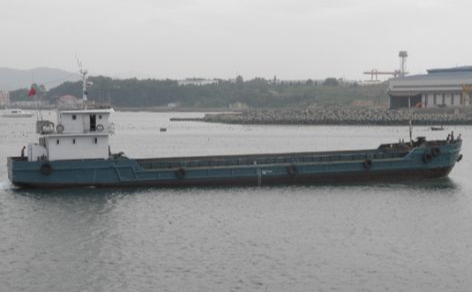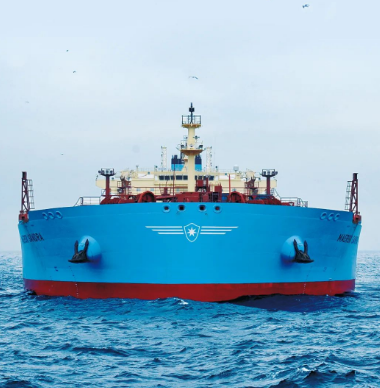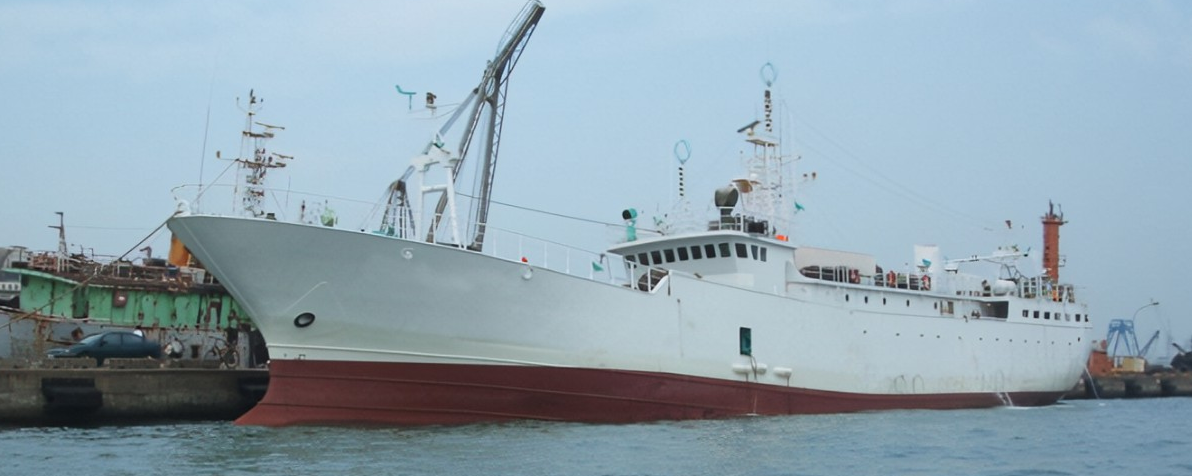"Smart ship Code" six functional module requirements
In recent years, due to the rise of the concept of intelligent ships and the increasing development of intelligent ship technology, ship intelligence has become the general trend of global shipping. In order to reduce the difficulty of ship control and management, reduce human error, improve the safety of equipment and ship operation, optimize ship navigation, control fuel consumption, reduce costs, and improve revenue through ship intelligence, the current research on intelligent ships has been carried out on a global scale.
Taking into account the development direction and development trend of future ship intelligence, in order to lead the development of the industry, but also for the ship navigation safer, more environmentally friendly, more economical and more reliable, China Classification Society based on the development of computer technology, communication navigation technology, advanced sensor technology, advanced control technology and other international intelligent ship technology research results in recent years, With full reference to the application experience and development status of smart ships at home and abroad, the CCS "Smart Ship Code" has been prepared and officially entered into force on March 1, 2016.
The CCS Smart Ship specification defines smart ships as follows: Intelligent ship refers to the use of sensors, communications, Internet of things, Internet and other technical means, automatically perceive and obtain the ship itself, Marine environment, logistics, port and other aspects of information and data, and based on computer technology, automatic control technology and big data processing and analysis technology, in ship navigation, management, maintenance, cargo transportation and other aspects of intelligent operation of the ship. The smart ship is divided into six functional modules: intelligent navigation, intelligent hull, intelligent engine room, intelligent energy efficiency management, intelligent cargo management and intelligent integration platform. When the ship's various functions meet the requirements of the CCS smart Ship specification, the smart ship can be awarded an additional mark:

The letters in parentheses of i-Ship (Nx, Hx, Mx, Ex, Cx, Ix) are the functional marks of smart ships, which correspond to the functional modules of smart ships as follows:
N-- Intelligent navigation function mark;
H-- intelligent hull function mark;
M-- Intelligent cabin function mark;
E-- Intelligent energy efficiency management function mark;
C-- Intelligent cargo management function mark;
I-- Intelligent integration platform function mark;
x-- Optional feature supplement flag.
When a ship has an intelligent function, the relevant intelligent function mark can be awarded separately.
The requirements of the smart ship specification for various smart ship functional modules are as follows:
1. Intelligent navigation
The standard requires that intelligent navigation should have the following basic functions:
■ Analyze and process meteorological, economic and logistics information;
■ Design and optimize the ship route and speed based on the analysis results. In addition to the basic functions, intelligent navigation can also have the function of autonomous navigation in open waters, or have the advanced autonomous navigation capability of automatically docking and leaving the dock, in narrow waterways, and in complex environments, as a supplementary intelligent function of intelligent navigation.
2. Intelligent hull
The specification requires that the intelligent hull should have the following basic functions:
■ Establish and maintain hull database;
■ Assist decision-making on hull safety and structural maintenance throughout the hull life cycle based on hull database data. In addition to the basic functions, the intelligent hull can also provide auxiliary decision-making of ship maneuvering as a supplementary intelligent function of the intelligent hull according to the automatic collection and monitoring of hull-related data.
3. Intelligent cabin
The specification requires that the intelligent cabin should have the following basic functions:
■ Monitor the running status of main engine, auxiliary engine and shafting in the engine room;
■ Analyze and evaluate the operating status and health status of mechanical equipment according to the data collected by the condition monitoring system;
■ Based on the results of analysis and evaluation, make corrective suggestions and provide auxiliary decision making suggestions for ship operation.
In addition to the basic functions, according to the results of the analysis and evaluation of the operating status and health status of the mechanical equipment, the corresponding maintenance plan can be developed as a supplementary function of the intelligent cabin.

4. Intelligent energy efficiency
The specification requires the intelligent energy effect to have the following basic functions:
■ Online monitoring and automatic data collection of the ship's sailing status and energy consumption;
■ Evaluate the ship's energy efficiency, sailing and loading status, etc., based on the collected data;
■ Through big data analysis, numerical analysis and optimization technology, provide data evaluation and analysis results and auxiliary decision-making suggestions for ships. In addition to the basic functions, it can also realize real-time monitoring, intelligent assessment and optimization of ship energy efficiency through speed optimization, optimal stowing based on trim optimization and other solutions, as a supplementary function of intelligent energy efficiency.
5. Intelligent cargo management
The specification requires that smart cargo management should have the following basic functions:
■ Realize the monitoring and alarm of cargo hold and cargo and assist decision-making;
■ To realize the monitoring and alarm of the cargo protection system and assist decision-making;
■ Optimize cargo loading through the collection and processing analysis of cargo, cargo hold and cargo protection system parameters. In addition to the basic functions, the intelligent cargo management system can also have automatic loading and unloading as its complementary function.
6. Intelligent integration platform
The specification requires that the intelligent integration platform should have the following basic functions:
■ At least three systems of intelligent navigation, intelligent cabin and intelligent energy efficiency management are integrated.
■ Should be open, able to integrate the existing shipboard information management system and subsequent new systems, to achieve comprehensive monitoring and intelligent management of the ship;
■ Achieve automated and standardized analysis reports through statistical analysis and comprehensive evaluation;
■ Provide comprehensive forecast and early warning for navigation, safety, economy and other related indicators through user setting;
■ Use the ship's historical operating status and related parameters to provide trend prediction for ship operation and management plans;

■ Support good auxiliary decision making, improve ship performance, and reduce human error. Based on the assessment and prediction results, provide integrated management and operational solutions for accident response, risk response planning, environmental protection measures, accident detection and prevention, economic performance improvement, resource management and communication;
■ Can realize ship-shore data interaction.
In addition, the specification also makes clear requirements for the development of computer systems and software corresponding to various intelligent functions, submitting data for review, testing and inspection, and staffing. Taking into account the continuous development of smart ship technology, the specification sets out the principle requirements for the application of new technologies: when the systems and equipment using new technologies are proved by risk assessment and testing to be able to achieve the same level of safety as the requirements of the CCS specification, the design of these systems and equipment may deviate from the requirements of the CCS specification. At the same time, the risk assessment method and the basis of new technology approval are given.
Ship intelligence has become an inevitable trend in the development of ship manufacturing and shipping. Today, as ships become increasingly intelligent and shipboard systems and equipment become increasingly complex, shipowners, design units, shipyards and equipment manufacturers are all thinking about the intelligent direction of future ships, and need corresponding regulations to regulate existing and future shipboard intelligent systems. CCS "Smart Ship Code" is filling this gap, is the world's first classification society code covering the full life cycle of smart ships from design, construction to operation.
In terms of content, the standard is clear, self-contained and operable; The division of six functions of "intelligent navigation", "intelligent hull", "intelligent engine room", "intelligent energy efficiency management", "intelligent cargo control" and "intelligent integration platform" covers all intelligent systems on board; In addition, the specification content is based on the existing specification system and can be well integrated with the current CCS specification requirements. At the same time, the standardized and open writing method fully takes into account the development of future intelligent ship technology, facilitates the continuous inclusion of new application results in the future, and improves and refines the existing technical requirements.
- ABB
- General Electric
- EMERSON
- Honeywell
- HIMA
- ALSTOM
- Rolls-Royce
- MOTOROLA
- Rockwell
- Siemens
- Woodward
- YOKOGAWA
- FOXBORO
- KOLLMORGEN
- MOOG
- KB
- YAMAHA
- BENDER
- TEKTRONIX
- Westinghouse
- AMAT
- AB
- XYCOM
- Yaskawa
- B&R
- Schneider
- Kongsberg
- NI
- WATLOW
- ProSoft
- SEW
- ADVANCED
- Reliance
- TRICONEX
- METSO
- MAN
- Advantest
- STUDER
- KONGSBERG
- DANAHER MOTION
- Bently
- Galil
- EATON
- MOLEX
- DEIF
- B&W
- ZYGO
- Aerotech
- DANFOSS
- Beijer
- Moxa
- Rexroth
- Johnson
- WAGO
- TOSHIBA
- BMCM
- SMC
- HITACHI
- HIRSCHMANN
- Application field
- XP POWER
- CTI
- TRICON
- STOBER
- Thinklogical
- Horner Automation
- Meggitt
- Fanuc
- Baldor
- SHINKAWA
- Other Brands




































































































































